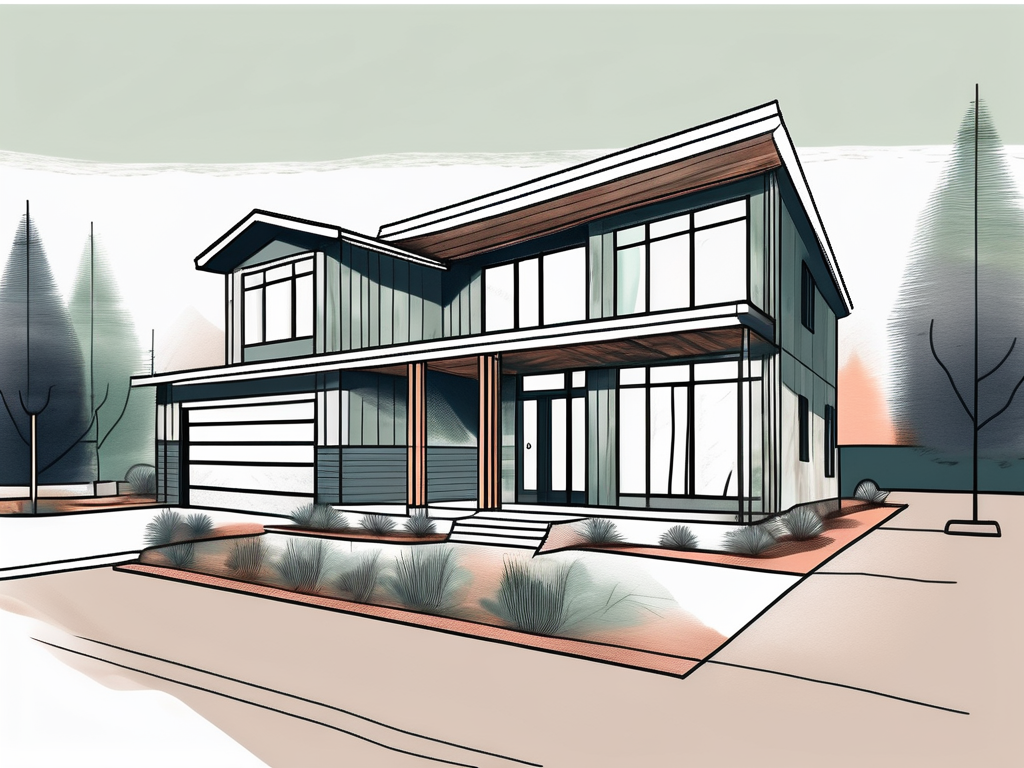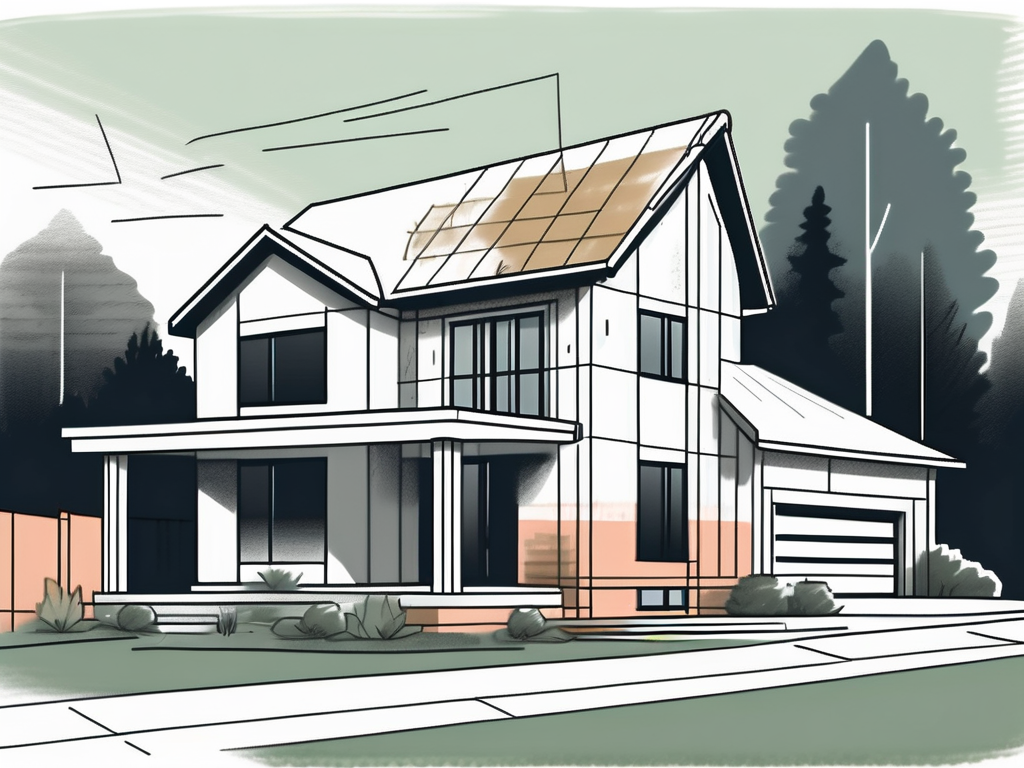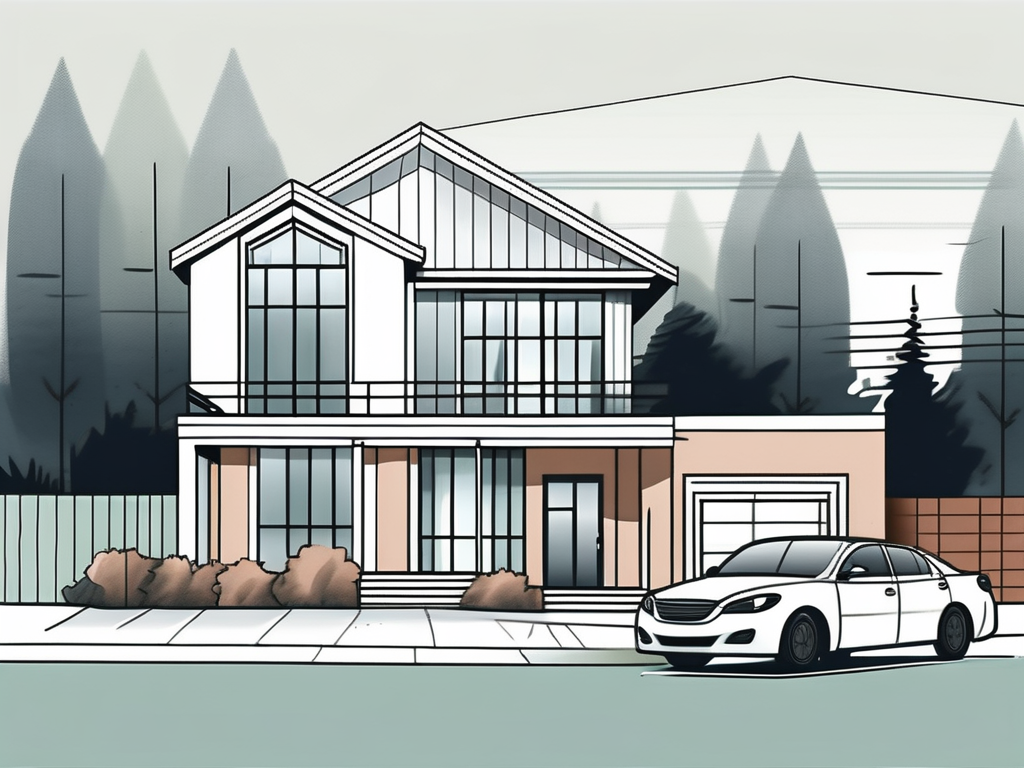Home improvement projects can be exciting and rewarding, allowing homeowners to customize their living spaces to better suit their needs and aesthetics. However, it's important to remember that proper planning and adherence to regulations are crucial when undertaking any kind of home improvement project. One key aspect of this planning is the pulling of permits. In this article, we will explore the concept of home improvement permits, the legal implications of not obtaining them, the role they play in ensuring safety, their impact on home value and insurance, as well as the process of obtaining them.
Understanding the Concept of Home Improvement Permits
Before delving into the significance of pulling permits, it's essential to have a clear understanding of what exactly a home improvement permit entails. Simply put, a permit is an official authorization granted by local authorities that allows homeowners or contractors to proceed with specific construction or renovation projects. These permits ensure that work is done in compliance with building codes, safety standards, and zoning regulations. Without the appropriate permits, homeowners risk facing legal repercussions and other serious consequences.

What is a Home Improvement Permit?
A home improvement permit is an official document that grants a homeowner or contractor permission to carry out specific modifications or additions to a residential property. This can include anything from structural changes and electrical work to plumbing upgrades and major renovations. Permits are typically issued by local building departments or the designated authority responsible for overseeing construction and development within a particular jurisdiction.
Different Types of Home Improvement Permits
Home improvement permits can vary depending on the nature and scope of the project. Some common types of permits include:
- Building permits: These permits are necessary for any construction activity that alters the building's structure, such as adding a room, expanding a living area, or constructing a new deck.
- Electrical permits: Required for any electrical work being done, such as installing new outlets, rewiring, or upgrading the electrical panel.
- Plumbing permits: Needed for plumbing projects, including installing new pipes, relocating fixtures, or replacing water heaters.
It is important for homeowners to consult with their local building department or permit authority to determine all the necessary permits required for their specific project.
Aside from the permits mentioned above, there are also specialized permits that may be required for certain home improvement projects. For instance, if you plan to install a new pool in your backyard, you may need to obtain a swimming pool permit. This permit ensures that the pool is built according to safety standards and regulations, preventing accidents and ensuring the well-being of those who will use it.
Another type of permit that homeowners might come across is the demolition permit. This permit is necessary if you plan to tear down any part of your existing structure, whether it's a wall, a shed, or even an entire building. It ensures that the demolition is carried out safely and in compliance with environmental regulations.
Furthermore, some jurisdictions require homeowners to obtain permits for projects that involve energy efficiency upgrades, such as installing solar panels or upgrading insulation. These permits help promote sustainability and ensure that the improvements are done correctly, maximizing energy savings and reducing the carbon footprint of the property.
The Legal Implications of Not Pulling Permits
While it may be tempting to bypass the permit process to save time and money, doing so can have severe legal implications. It's crucial to understand the potential consequences before proceeding with any unpermitted work.

When embarking on a construction project, obtaining the necessary permits is not just a formality but a legal requirement that ensures the safety and compliance of the work being done. By skipping this crucial step, homeowners expose themselves to a myriad of risks that could have long-lasting repercussions.
Potential Legal Consequences
One of the main legal consequences of not pulling permits is the risk of being fined or penalized by local authorities. Building departments have the authority to issue hefty fines and even order the removal or demolition of work that has been done without proper permits. Additionally, some jurisdictions may require homeowners to obtain retroactive permits, which can be a time-consuming and expensive process.
Furthermore, in the event of a property sale, unpermitted work can become a major hurdle. Potential buyers may request documentation of permits for any modifications or additions, and the absence of such permits can significantly devalue the property or even lead to the collapse of the sale.
How Permit Violations Affect Homeowners
Permit violations can also have a negative impact on homeowners when it comes to insurance coverage. In the event of a claim related to unpermitted work, insurance companies may deny coverage, leaving homeowners responsible for repair costs or damages. In some cases, unpermitted work can even void a homeowner's insurance policy altogether, leaving them vulnerable and exposed.
Moreover, non-compliance with permit regulations can raise red flags during home inspections or appraisals, potentially hindering refinancing or obtaining home equity loans. Lenders often require proof of permits for any major renovations or additions to ensure the property's value and structural integrity, making unpermitted work a significant obstacle in financial transactions.
The Role of Permits in Ensuring Safety
Beyond the legal consequences, another critical aspect of pulling permits is the role they play in ensuring the safety of homeowners and occupants. Adhering to building codes and safety standards is crucial when it comes to maintaining a safe living environment.
How Permits Uphold Safety Standards
Permits are designed to ensure that construction or renovation projects meet local building codes and safety regulations. These codes are in place to protect homeowners from potential hazards and ensure that work is done in a way that minimizes the risk of accidents or injuries. Some examples of safety considerations include proper electrical wiring, structural stability, fire safety measures, and compliance with accessibility requirements.
Risks of Unpermitted Work to Home Occupants
When undertaking home improvement projects without the necessary permits, homeowners put themselves and their occupants at risk. Without proper inspections and oversight, there is a higher likelihood of substandard workmanship or shortcuts being taken, leading to potential safety hazards. Whether it's faulty electrical wiring, inadequate structural support, or improper plumbing installations, the consequences of unpermitted work can be far-reaching and dangerous.
The Impact of Permits on Home Value and Insurance
Homeowners often invest significant time and resources into improving their properties with the intention of increasing their value. However, failing to obtain the required permits can actually have the opposite effect and negatively impact both home value and insurance coverage.
How Permits Influence Home Resale Value
When it comes time to sell a home, potential buyers will want assurance that any modifications or renovations have been done in adherence to building codes. Unpermitted work can raise red flags and lead to concerns about the quality and safety of the improvements. This can make it more difficult to sell the property and may even result in offers below market value.
The Relationship Between Home Insurance and Permits
Home insurance providers typically rely on accurate information regarding a property's condition and improvements when determining coverage and premiums. Failing to disclose unpermitted work can lead to complications and potential disputes in the event of a claim. This is why it is crucial for homeowners to obtain the necessary permits and ensure that all upgrades and renovations are properly documented.
The Process of Obtaining a Home Improvement Permit
While the permit process may seem daunting, it is essential for homeowners to familiarize themselves with the steps involved in acquiring the necessary permits.

Steps to Acquire a Permit
1. Research the requirements: Start by contacting your local building department or permit authority to understand the specific requirements for your project. They will provide you with the necessary information and forms needed to apply for a permit.
2. Complete the application: Fill out the permit application form, providing accurate details about the scope of work, materials, and any plans or drawings if required.
3. Submit the application: Submit the completed application along with any supporting documents and payment of the permit fees.
4. Wait for approval: The building department will review the application and plans to ensure compliance with regulations. This process may take several weeks, so it's important to plan accordingly.
5. Schedule inspections: Once the permit is approved, inspections will need to be scheduled at various stages of the project to ensure compliance with building codes and safety standards.
Dealing with Permit Costs and Waiting Periods
It is essential for homeowners to budget for the costs associated with obtaining permits, including application fees, plan review fees, and any additional costs that may arise during the project. Additionally, waiting periods for permit approval should be taken into account when planning timelines for home improvement projects. Proper planning and preparation will help ensure a smoother permit process and minimize any potential delays.
By understanding the importance of pulling permits when doing work to a home, homeowners can protect themselves from legal and financial repercussions, ensure the safety of their living spaces, maintain and potentially increase their property's value, and navigate the permit process with confidence. The time and effort invested in obtaining permits are undoubtedly worthwhile, providing homeowners with the peace of mind that their home improvements are being done correctly and in compliance with all applicable regulations.

